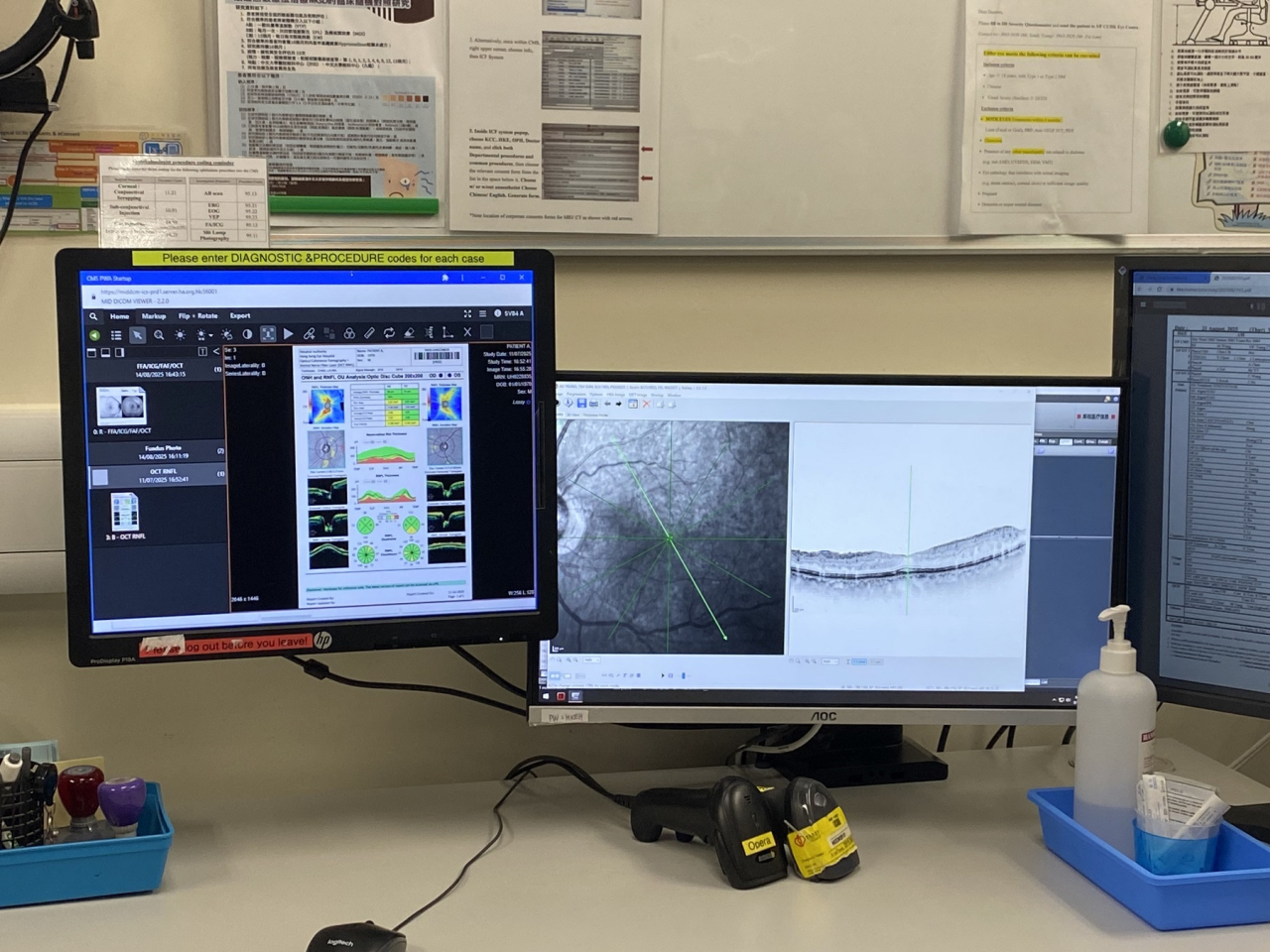Lugging around paper records of various eye exams will become a thing of the past for virtually all patients who attend the Hospital Authority’s eye clinics by early next year, as the authority’s paperless system enters its next phase.
Results and images from more than 200 machines from 12 eye centres and hospitals will be standardised in a digital format – an advancement that promises to increase efficiency and facilitate the immediate transfer of medical data.
“In the past, you might be holding your own records and running around between exam rooms and consultation rooms, but now… we do not need you to bring to us our medical records because we can upload them electronically,” said Dr Noel Chan, a member of the authority's Coordinating Committee in Ophthalmology.
The first phase of the scheme launched in 2022 covered information and images from five main types of ophthalmic investigations, Chan said, but the next phase brings the coverage to 99 percent of eye examinations.
The digital records mean patients can transfer between different clinics with ease, and in time, they can also make it easier for patients who wish to consult private-sector doctors.
"These images, in the long term, we are going to share it in the electronic health record, which should be made available as part of the diagnosis for the private sector as well,” Chan said.
She added that the system won’t just save time for medical staff – savings of at least HK$1 million per year is expected on printing costs alone, though patients can still ask for print-outs if they want.
Chan also said other improvements are being made – such as the roll-out of a clinical management system this year which incorporates data analysis that can identify trends in the progression of various conditions.
"For example, in a patient who has glaucoma and with a visual field performed, if we are able to upload this examination, we're able to use this software to analyse if the patient is getting worse," Chan said.
"So we are able to get the results much faster and so this will help us manage the patients in a more efficient way," she added.
The authority said it is also seeking to adopt artificial intelligence technology to assist doctors in analysing medical images, to help them screen patients for diseases and monitor their conditions.
It added that having medical records stored in a centralised server would facilitate wider use of virtual consultations.
The HA said various trials for these measures are underway.





